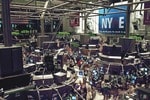
Is Celestica The Best AI Stock to Buy Now?
Technology and hardware business Celestica (NYSE:CLS) has seen massive upward…


Technology and hardware business Celestica (NYSE:CLS) has seen massive upward…

Since January 28th, software stocks in the United States have…

Over the last five days, shares of Instagram and Facebook…
Market Cap: $4.4T
P/E Ratio: 37x
Market Cap: $3.9T
P/E Ratio: 35x
Market Cap: $3.7T
P/E Ratio: 28x
Ziff Davis, Inc. [ZD] is up 3.64% over the past day.
Power Solutions International, Inc. [PSIX] is down 1.4% over the past day.
LendingTree, Inc. [TREE] is up 1.11% over the past day.